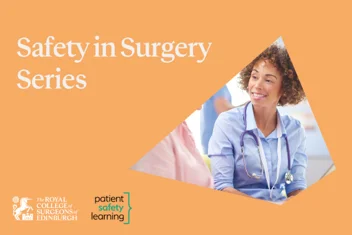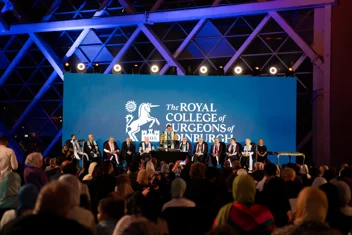Featured RCSEd Blog
Blogs Library
Surgery Saves Lives, Access Changes Everything: Global CARE Launches
On Thursday 26 June 2025, the College’s officially launched Global CARE - Creating Access to Resources and Education. This pivotal occasion marked a transformative step forward in the College's commitment to global health equity, bringing together Members, Fellows, donors, and partners who share our vision of a fairer, more equitable global healthcare system.

Why I'm on RCSEd Council - Professor Robin Paton
The Council of the College is seeking nominations for several vacancies which will arise on Council in November 2025. Fellows' nominations are open until 30 June, and the ballot will open on 21 July when all Fellows and Members can vote in the election.
General

Inaugural Macleod McLaren Medal to Be Awarded to the Surgical Sabermetrics Laboratory (SaberLab) at the 2025 Triennial and ICOSET Conference
Professor Steven Yule, Chair of Behavioural Sciences at the University of Edinburgh and Director of Non-Technical Skills at RCSEd, is leading a workshop at the 2025 Triennial and ICOSET Conference, taking place from 4-6 June. He will also receive the inaugural Macleod McLaren Medal in Patient Safety at the conference on behalf of the Surgical Sabermetrics Laboratory (SaberLab).

Foundations in Dental Leadership Programme 2025
Bridge the gap in your dental leadership skills with the Royal College of Surgeons of Edinburgh’s Foundations in Dental Leadership (FDL) course. Designed for modern dental professionals, FDL combines virtual learning and interactive sessions to build personal and team leadership capabilities. Aligned with GDC standards, it supports inclusive, multidisciplinary and future-focused dental care.
Dental












